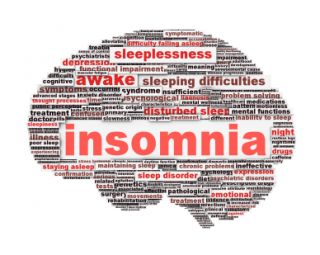
Trauma
Trauma, Stress, and Restorative Sleep
Rediscover restorative sleeping and dreaming amidst trauma and stress.
Posted November 27, 2012
We have recently been exposed to some very stressful and traumatic events that have affected a significant number of people in our country (e.g., Hurricane Sandy, the Presidential election, talk of a fiscal cliff, economic instability, and concern about escalating violence and upheaval in different parts of our world). These collective traumas add to individual stress and trauma that is already a part of life for so many people. Individual and collective stress and trauma can significantly affect the quality and quantity of our sleeping and dreaming. Chronic hyper-arousal due to current stressful situations or past stress and trauma in our lives takes a tremendous toll on our sleep and comprehensive health.

Dr. Gregg Jacobs whose research has been conducted and validated at both Harvard and the University of Massachusetts Medical Schools is the principal investigator of the Cognitive Behavioral Therapy program for Insomnia (CBT-I). His research confirms that hyper-arousal is one of the main factors that cause insomnia. Chronic stress and trauma causes the brain to become hyper-aroused which affects the balance of the Autonomic Nervous System (ANS). Additional stress and strain on our physical and psychological functioning occurs, creating an imbalance that can significantly disrupt sleeping, dreaming, and overall health (e.g., increases the chance of becoming sick and contributes to the development of chronic medical conditions and diseases). While the brain can become habitually hardwired for stress, trauma, and hyper-arousal, the outlook for restorative sleep is actually very encouraging. We can better self-regulate by learning how to rewire the brain and establish new neural connections for less hyper-arousal and more restorative sleeping and dreaming on a long-term basis.
It is wise to consult a mental health clinician to help process and heal significant stress and trauma that may be too complex to resolve independently. Our internal capacity to bring about significant and lasting changes to our brain functioning through mind body medicine practices allows us to establish new and lasting neural connections. These connections quiet the amygdala in the mid-brain, bolster the parasympathetic branch of the ANS for balance, and create the conditions for easing into a deeply restful and restorative sleeping and dreaming experience.
Barry Krakow, MD, the Founder and Medial Director of the Maimonides PTSD Sleep Clinic in Albuquerque, New Mexico is one of the most sought after experts in the field of sleep and trauma research. His work focuses on the need to gently recognize any traumatic feelings, thoughts, and images throughout the day and especially at night. A healing balance between these feelings, thoughts, and images can be created by gently focusing one’s attention on more neutral or pleasant feelings, thoughts, and images. This balance can help to lessen hyper-arousal and prepare your body, mind and spirit towards restorative sleeping and dreaming. One of Dr. Krakow’s suggestions is to look at nurturing pictures of loved ones and friends or to enjoy the rich and nurturing images found within nature books either before bedtime or during the night if sleep is disrupted.
Mind-Body medicine techniques to heal stress and trauma and restore healthy sleeping and dreaming can be inexpensive, effective, and relatively easy to implement on your own or in consultation with a mental health clinician. Listed below are five mind body medicine techniques that can be used to heal hyper-arousal and allow for the mind, body, and spirit to experience a more restorative and restful sleep.
1 – Repeat positive sleep thoughts and nurturing affirmations before going to bed and upon arising in the morning to bring down hyper-arousal. (See our previous Pychology Today Golden Slumbers blogs for some excellent and evidence-based positive sleep thoughts.)
2- Practice mindfulness by becoming a compassionate, kind, gentle and non-judgmental friend to whatever is distressing and traumatic to you. Know that life is only found in the present moment. Recognizing, honoring, expressing, and sharing any semblance of stress or trauma in the present moment will help lessen hyper-arousal. You can share and express your suffering in a variety of different ways (e.g., prayer, journaling, and therapy). In doing so you will eventually focus more on the healing elements of your present moment experience and will be less inclined to pursue stressful and traumatic patterns of thinking and feeling.

3- Focus on your brain. Imagine that your pre-frontal cortex is a conductor of a beautiful symphony that regulates and re-wires your brain towards healing. This symphony brings the amygdala in resonance and harmony with the rest of the brain, resulting in a more balanced and peaceful way of being.
4 – To bring about better conditions for restorative sleeping and dreaming focus on getting more sunlight, engage in moderate physical activity, and decrease any intake of caffeine or alcohol. Sleeping in a cool, pitch dark, and uncluttered bedroom can also enhance restorative sleep. (Tip: For some who have experienced trauma, sleeping in a pitch-dark room can be unsettling. Rubin Naiman, Ph.D. with Dr. Andrew Weil’s University of Arizona’s Center for Integrative Medicine is an expert in transformative mindful sleeping and dreaming. Dr. Naiman coined the phrase “dark chocolate time” to describe a more soothing relationship with darkness and sleep. He suggested that you can think of a pitch-dark room as “dark chocolate time” to enjoy a different connotation of darkness.)

5 – Know that the preceding four steps will lessen hyper-arousal, restore natural circadian rhythms for better sleep scheduling, and begin to transform stress and trauma for deeply restorative sleeping and dreaming.

